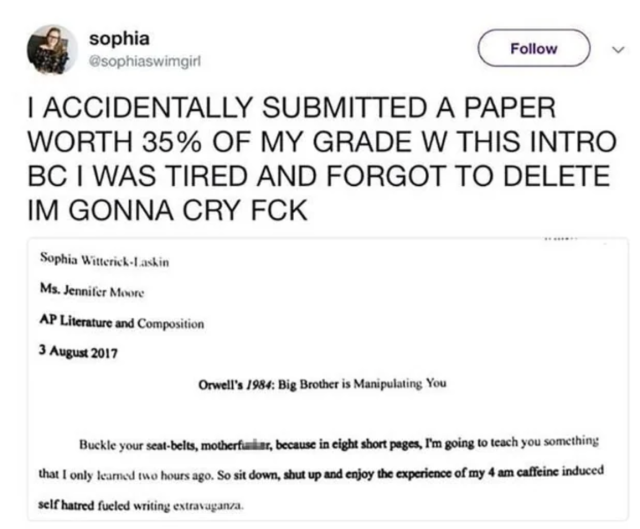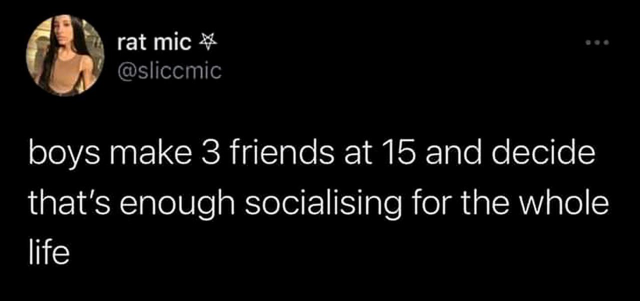🤖 Mitch's newsletter
Mitch's Blog
ME: [Closes MacBook, looking guilty, as Julie enters room]
JULIE: “What were you looking at?”
ME: “Nothing! I was just sitting.”
JULIE:
ME: “I was looking at home repair tips!”
JULIE:
ME: “I was shopping for a gift for you!”
JULIE:
ME: “Fine! I admit it! I was looking at porn! Nasty, filthy, disgusting, kinky, perverted porn!”
JULIE: “Don’t give me that! You were looking at productivity videos on YouTube again!”
ME: [ashamed] “Yes. Yes I was.”
I'm giving Capacities a try as a possible Obsidian replacement
I downloaded Capacities previously, watched some videos, and read some documentation, but I never actually did anything with it. And now I have — created a few documents, which Capacities called "Objects."
It feels like Capacities is Obsidian 2.0. It does less than Obsidian, but it seems to do all the things I want it to do and perhaps all the things most Obsidian users need. Capacities is not easy to figure out, but Obsidian seems to require programming skills to make the most of it, and Capacities does not require those kinds of skills.
In the past, when I've switched to new productivity software, I attempt to build an organizational system early on, but this time my rule is to wait until it's hard for me to find something or do something, and then add the bare minimum organization to fix that problem. I've got a couple of dozen documents in Obsidian now; I'm not going to sit here and attempt to figure out a system that will scale up to hundreds or tens of thousands of documents.
I like Capacities. It seems to do all the things I do in Obsidian, but easier. Like moving from a command line to a GUI. On the downside, it uses a block editor. I do not like a block editor. We'll see if I can adjust.
Question for those of you who are familiar with both applications: What do I need to know about changing my Obsidian methods and workflows to suit Capacities? I write research reports and articles, each requiring days or months to research and write.
The FTC has documented in detail how big tech companies flagrantly violate user privacy. Cory Doctorow @pluralistic@mamot.fr comments:
I understand the reflex to greet a report like this with cheap cynicism, but that's a mistake. There's a difference between "everybody knows" that tech is screwing us on privacy, and "a federal agency has concluded" that this is true. These market studies make a difference – if you doubt it, consider for a moment that Cigna is suing the FTC for releasing a landmark market study showing how its Express Scripts division has used its monopoly power to jack up the price of prescription drugs:
Big business is shit-scared of this kind of research by federal agencies – if they think this threatens their power, why shouldn't we take them at their word?
— "Tech monopolists use their market power to invade your privacy"
jwz is the nom de internet of Jamie Zawinski, a software developer who worked on Netscape and other projects, and who is now proprietor of DNA Lounge, a San Francisco nightclub and live music venue.
The LAPD is being sued by a medical facility claiming that a cop trashed an expensive MRI machine by bringing a rifle into the room, ignoring a sign warning against bringing in metal objects. Police reportedly raided the facility based on a false claim it was being used for marijuana cultivation. "The whole operation was nothing short of a disorganized circus, with no apparent rules, procedures, or even a hint of coordination," the complaint says.
Brazilian courts wanted seven accounts suspended and for X to pay fines. Instead of doing that, Musk publicly fought with the country’s supreme court, got the app banned, and allowed thousands of users to set up accounts on competitors Threads and Bluesky only to end up suspending the accounts originally flagged, paying the fines, and also is now paying even more fines. It’s invigorating to watch a true genius at work.
My latest on Fierce Network: Verizon says its service is “fully restored” after a nationwide US disruption Monday.
Mark Zuckerberg criticizes Apple for keeping a closed ecosystem but does the same with Facebook and Instagram. Pot, kettle, black.
Indeed, the Apple ecosystem is far more open than Meta’s platforms.
To be fair, Meta is a champion of open source software and hardware. But its services are closed and locked down and Meta is aggressive about keeping it that way.
The Internet Archive's fight to save itself.
Legal battles with publishers Hachette and the Universal Music Group threaten to destroy this priceless repository of media history, which includes the Wayback Machine and a lot more.
Founder Brewster Kahle made a fortune in the 90s dotcom boom, and funneled much of that money into the Internet Archive (though it should be noted that he's not living like he's taken a vow of poverty — he owns a sailboat and docks it at a "tony yacht club.")
Kate Knibbs reports at Wired:
“The story of Brewster Kahle is that of a guy who wins the lottery,” says longtime archivist Jason Scott. “And he and his wife, Mary, turned around and said, awesome, we get to be librarians now.”
The day I read this article, Sunday, I had previously downloaded a 1948 issue of the pulp sci-fi magazine Astounding Stories so I could re-read a story there that I loved when I was about 12 years old, "Dreams Are Sacred," by Peter Phillips.
The Internet Archive needs to be preserved, and if that means passing a special law to protect it, then so be it. The shareholders in Hachette and Universal Music Group can pay for it by skipping a day polishing the gold toilets in their mansions.
Revisiting a childhood favorite story: ‘Dreams are Sacred’ still delights
I had a blast Sunday re-reading one of my favorite stories from when I was 12 years old: "Dreams are Sacred," by a writer named Peter Phillips. It was easy to track down — a quick Google search on the title (which fortunately I remembered) led me to the Internet Archive and a complete scan of the magazine where it was first published: Astounding Science Fiction, September, 1948
The story holds up — it's exciting, fast-paced and funny.
The hero is Pete Parnell, a fast-talking wisecracking New York sportswriter who is recruited by his friend Steve Blakiston, a psychiatrist, to help with an experimental technique that could cure the madness of a science fiction and fantasy writer named Marsham Craswell. The writer has fallen into an unconscious fugue state and is trapped in an endless dream scenario from his own stories, which resemble Conan the Barbarian or Barsoom.
Fortunately, Blakiston has invented a machine which allows one person to enter another's dream. Parnell is tapped for the job of curing Blakiston because Parnell is the fastest-thinking and hardest-headed person Blakiston knows.
Supporting characters include a friendly cop with an Irish accent straight out of cartoons, a surly cab driver and a sexy lounge singer.
I found the story every bit as enjoyable as I did when I was 12 years old. Old-fashioned? Sure! That's part of the fun.
Phillips, the author, was no New Yorker — he was English. He was a newspaperman who wrote about two dozen science fiction stories. He died in 2012, age 92. In addition to "Dreams are Sacred," he also wrote another story I loved when I was a boy, "Manna," about a stack of canned super-food that gets transported accidentally back in time to a medieval monastery. Hilarity ensues.
More on Phillips here, including some wonderful old magazine and book covers.
Astounding Science Fiction, the magazine "Dreams are Sacred" appeared in, was founded in 1930, with the delicious title, "Astounding Stories of Super-Science." Beginning in 1939, under editor John Campbell, Astounding published groundbreaking writers including Isaac Asimov and Robert A. Heinlein. The magazine changed its name to Analog Science Fact & Fiction in 1960 and still publishes today, under the name Analog Science Fiction & Fact.
Also last weekend, I re-read another favorite from the same period, "The Push of a Finger," by Alfred Bester. And I downloaded one more, "Farewell to the Master," by Harry Bates, which was the basis for the movie "The Day the Earth Stood Still."
I read all three stories when I was a boy, in the fat, two-volume anthology, "The Astounding-Analog Reader," which I checked out of the East Northport Public Library about a dozen times, every time I was in the mood to re-read it.
All three stories have newspapermen as heroes. I guess those stories made an impression — I have made my career in journalism of one form or another for my entire life. (In addition to those stories, I also devoured Superman, Spider-Man, and especially the Mary Tyler Moore Show and Lou Grant. I wanted to be Lou Grant when I grew up. I still do.)







